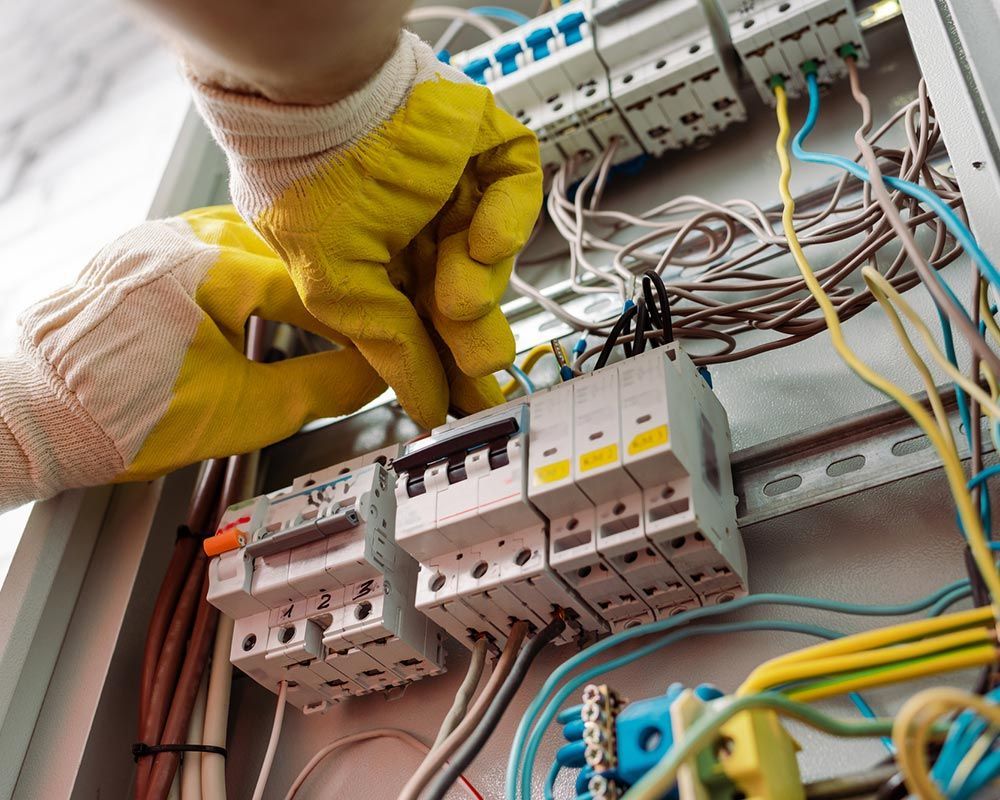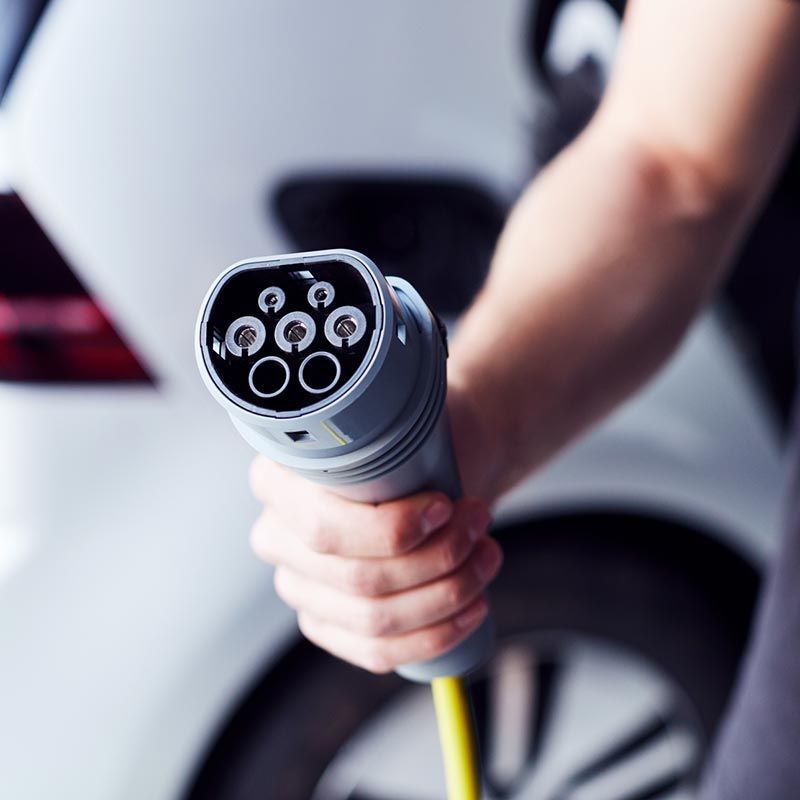What EV Charging Options Are Available?
An electric vehicle’s ability to recharge quickly depends on a home’s electrical supply and the EV charging unit.
There are three options available for EV chargers. Level one chargers are the slowest, while level three are the fastest. Most homeowners choose a Level 2 EV charger.
- Level 1 Chargers - Electric vehicles come standard with a Level 1 charger. A Level 1 charger uses a home’s standard outlet, making these chargers useful for slow overnight charges. Level 1 chargers can add approximately 5 miles of range for each hour of charging.
- Level 2 Chargers - Level two chargers charge a vehicle faster and require an electrician for installation. Level 2 chargers require a dedicated 240-volt circuit to supply a strong enough current to charge an electric car faster. Level 2 chargers can add approximately 70 miles of range for each hour of charging and are the most popular home charging option.
- Level 3 Chargers - Level 3 EV chargers are high-speed but require an industrial power supply. Level 3 charging stations can recharge an electric vehicle’s battery to 80% in only 30 minutes. Level 3 chargers are not typically possible to install at home.
Can I install an EV charger myself?
Are you considering installing an EV charger at home? While it may appear to be straightforward, it can be quite complex and potentially risky if not done correctly. Installing an EV charger requires a thorough understanding of your home's electrical system, proper wiring techniques, and compliance with safety regulations. Mistakes made during installation can lead to electrical hazards or even damage to your vehicle.
That's why we strongly recommend hiring a qualified electrician or a professional installer specializing in EV charger installations. Properly trained electricians are experts with the necessary knowledge and expertise to install the charger safely and correctly. Get peace of mind and avoid potential issues when you hire Gorjanc Home Services to install your home EV charger. Don't take any chances with your safety or EV - leave it to the professionals!
Is it better to charge a car on 110 or 220?
Charging your car on 220 volts, also known as Level 2 charging, is generally better than charging on 110 volts or Level 1 charging for several reasons:
- Faster Charging: Level 2 charging provides more power to your car, allowing it to charge much faster than Level 1 charging. A Level 2 charger is more efficient if you need to charge your vehicle quickly, especially for longer trips.
- Convenience: With Level 2 charging, you can add more miles of range per hour of charging compared to Level 1. You'll spend less time waiting for your car to charge and more time driving, making it more convenient for your daily routine.
- Efficiency: Level 2 charging is more energy-efficient than Level 1 charging. You'll use less electricity to charge your car, which can help lower your overall energy costs over time.
- Compatibility: Many electric vehicles are equipped with onboard chargers designed to work with Level 2 charging stations. While you can still charge your car on Level 1, Level 2 charging is often the preferred option for faster and more efficient charging.
Choosing a Level 2 charging is generally best for its speed, convenience, and efficiency.
Call or Text (216) 545-1776 to schedule service or installation
Blog | Financing | Specials | Now Hiring | Service Plans
Don’t regret calling the wrong company for heating, cooling, plumbing, or electrical services. Make the right choice and call Gorjanc Home Services at (216) 545-1776.
Gorjanc Home Services is Northeast Ohio’s Choice for heating, cooling, plumbing, and electrical service since 1963.
OH Lic# 18275





